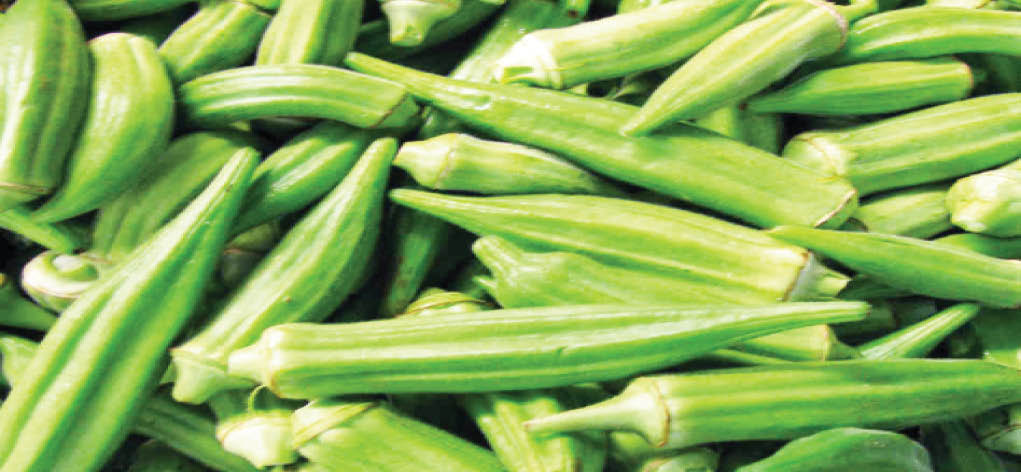Okro, as it is popularly known in the Nigerian parlance, is a vegetable used to prepare soup to eat different varieties of food mostly swallowed than chewed. They include wheat, cassava flour, semovita, eba, amala, pounded yam tuwon shinkafa, among others.
It generally contains a sticky juice that people use to thicken sauces.
- Naira crashes to N707/$ as Senate summons Emefiele
- Buhari convenes emergency security meeting as senators dangle impeachment
The English word for okro, however, is okra, and it is said to have lots of benefits and uses. It is popular in the southern United States, parts of Africa and the Middle East, the Caribbean and South America.
A journal written by Megan Ware in 2019 and medically reviewed by Natalie Olsen stated that okro is an essential crop in many countries because it is a good source of minerals, vitamins, antioxidants and fibre. Okro also provides some iron, niacin, phosphorus, and copper.
Again, people can use many parts of the plant, including the fresh leaves, buds, flowers, pods, stems and seeds.
In Nigeria, many households consume okro, so lots of farmers cultivate it. Our correspondent, who visited some okro farmers in Jos, the Plateau State capital, found that the crop is giving a good yield.
Interestingly, its harvest is not a one-time business, as each plant can have up to six pods with different levels of ripeness, and they are plucked according to the farmers’ needs.
However, this year’s farming of okro is exciting for farmers who cannot hide their satisfaction with the yield, and particularly as the diseases that attack other crops/plants could not attack okro due to its resistance ability.
An okro farmer in the Zarmaganda area of Jos South, who was harvesting the crop on her farm, Eucharia Linus, said among the crops she cultivated this year, she benefited more from okro in terms of sales and consumption.
She said she cultivated other crops alongside okro, but lost out because the other crops were attacked by various diseases, particularly Irish potato.
“I have been farming for over 40 years now, and on this land I have been farming since 2003. And all through my farming I have been farming different crops, including okro, some of which I came to harvest today.
“I planted the okro in May when the rains commenced and now I am already harvesting. Okro harvesting is in phases/stages even on a particular plant. A plant can bring out plenty of pods at the same time, but with different growth/enlargement and ripeness rates.
“So I came to the farm to pluck the ones that are already due for harvesting. We harvest it when it is soft, because once it becomes strong, it is no longer good for consumption. You can then only keep the pod till the next planting season to extract the seed for planting.
“I am impressed with the yield I am getting from my okro, especially that it survived from plant diseases which destroyed other crops; particularly Irish potatoes, which many farmers cultivated unfortunately at a loss this year.
“I spent over N20,000 on this farm to cultivate Irish potatoes, but I can’t even boast of getting one rubber paint measure (which is sold at about N4,000) out of it because of the disease that destroyed the crop. So, next year I will not farm Irish potatoes.
“But okro survived all the disease attacks and produced good yield for me. I am harvesting this phase now, I will get up to one bag and sell it for about N4,000. I will then buy garri and other food items with the money. I will also keep the one for consumption at home.
She said apart from the nutrients okro has, many people, particularly children, like to eat food because of okro and that it can be prepared with minimal ingredients.
She encouraged farmers to cultivate okro, saying that it is economical, beneficial, can adapt to any weather, grows alongside other crops and can protect itself against many crop diseases.
Mrs Linus also pointed out that okro can be planted in gardens at home and not necessarily only on the farm. She added that it does not grow too tall to cover houses.
Another okro farmer, Bless Okechukwu, said apart from farming okro for sale, it is also one of his best foods because of its slimy nature.
Okechukwu, who is also a student, said there are two species of okro; one is thornier than the other, and the thorny one produces more fruit and is more marketable.
He said he has never regretted farming okro as one will always have instant food from it and a crop to sell from time to time.
He said many farmers he knew were not into okro farming because they probably didn’t know its viability, but that it is very viable and has been flourishing for him.
He called on those in authority and the agricultural value chain to give okro farming prominence so that it can attract farmers’ interest and make more of them to cultivate it.

 Join Daily Trust WhatsApp Community For Quick Access To News and Happenings Around You.
Join Daily Trust WhatsApp Community For Quick Access To News and Happenings Around You.


